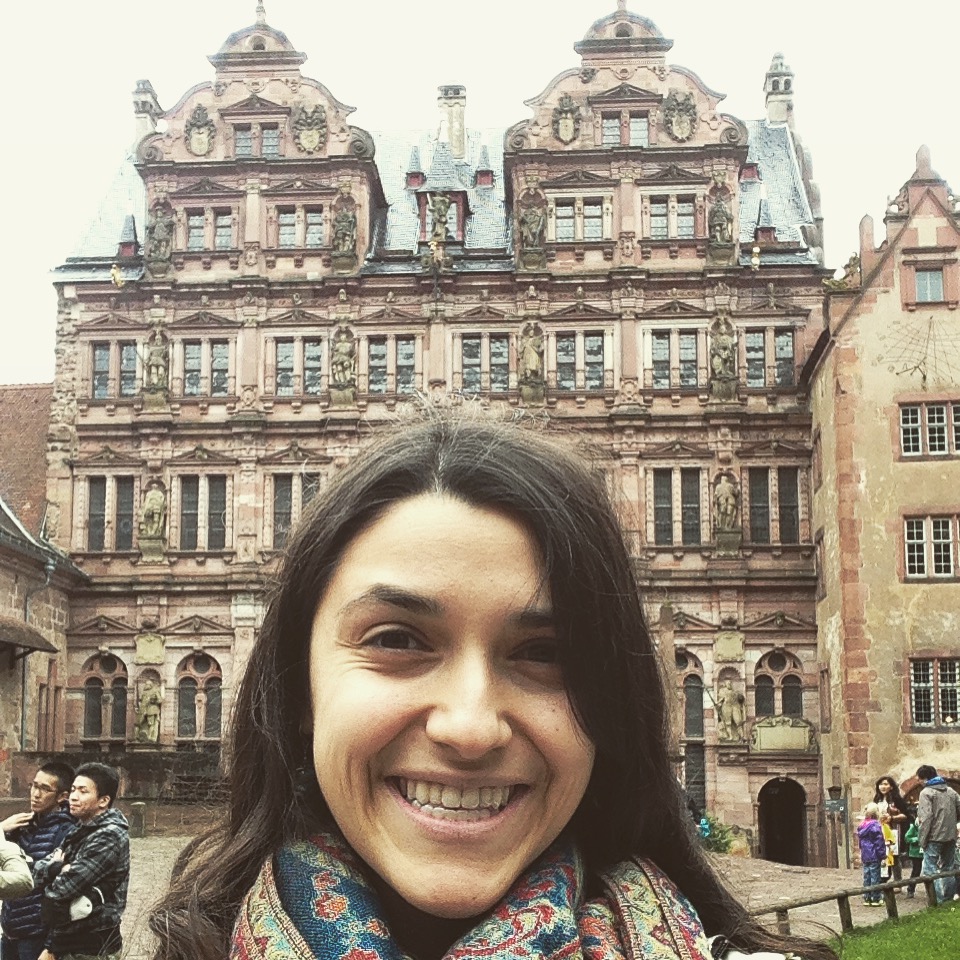Hi everyone! I’m so glad to be back this year as a contributor for the student blog. It’s been so nice to read about other grad students’ experiences and advice, and also learn about the great variety and quality of graduate programs at Memorial. As an archaeology Master’s student, my first year was full of ups and downs. I got through it and learned a lot about myself and about my topic of research. Through experiments, my proposal defence, course work, conferences, and field work I’ve come out of my first year with so many new tools and experiences that have fueled my passion for archaeology.
With the support of a Michael Smith Award from the Social Sciences and Humanities Research Council and a Scotiabank Bursary for International Study, I was fortunate this summer to have the opportunity to go abroad for three whole months and conduct my own analysis at the Institute for Geosciences at the Johannes Gutenberg University of Mainz in Germany.
My research investigates the seasonality of archaeological sites in southern British Columbia, through the geochemical analysis of archaeological shellfish material for oxygen isotope ratios. From these data, I can interpret the season of death of the organism, which also means the season when it was collected by humans, which I can then interpret into the seasons when people inhabit these sites.
While I could have sent my shell samples by FedEx to be analyzed in Germany and stayed in St. John’s until the receipt of the results, coming to Mainz and immersing myself in the lab culture has enriched my studies. Sure, I wrote up my methods before coming to Mainz and thought that I understood the whole process but let me tell you, nothing can replace the real thing. I learned the methods for the analysis of my samples hands-on and also learned that when you get the keys to the labs, there comes other responsibilities… I thought that I might just come here, prepare my samples, have the technician analyze them, and I would interpret the results. Since coming here I have learned how to clean vials to remove contaminants, I have learned how to prepare batches of samples inside a mass spectrometer before I actually click the start button for them to be analyzed, and I have spent hours perfecting the art of weighing powders, where I can basically eyeball the amount of shell powder (the material that ends up being analyzed) so that it is the exact weight range, in MICROGRAMS mind you, that is required for the instrument to provide me with precise oxygen isotope ratio values. I’ve got skills and there’s multiplying! It’s electrifying!
I’ve had great little adventures in Germany too, such as going to the medieval castle in Heidelberg (as you can see in the photo), visiting art museums and the famous cathedral in Cologne, reading a book by the Rhine River, and obviously drinking some awesome German beer with new friends.
To prospective students, know that your graduate studies at Memorial can take you to all sorts of places, places that will surely enhance your graduate experience, and to current students, I hope you can find a way to get involve with international communities that your research touches. It has the potential to inform how you think about your research in a more concrete and less abstract way. Being in Germany, I’ve also realized how much peer groups can influence your mindset towards your research. I am so thankful to have had the opportunity thus far to have both a community of archaeologists and geoscientists to bounce my research ideas off of. Most rewarding of all, my research abroad experience has broadened my research community. I am so grateful and can’t wait to bring back all my data to Memorial.
Tschüss! Bis bald!
~Natasha
P.s. Yeah, I’ve picked up a little German too!
